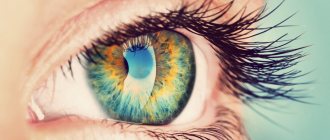Julia Klouda
Head of the expert resource about dentistry Startsmile.ru.
How to stop being afraid of the dentist? "No way!" - many patients will answer, especially those who experienced Soviet dentistry, and, perhaps, will immediately drink four hundred drops of valerian.
Sometimes it seems that we absorb the fear of dentists with our mother’s milk, through which the memory of dental treatment without anesthesia, ineffective anesthesia and doctors not burdened with excessive politeness or patience is transmitted. However, times have finally changed... Or have they?
What is child phobia - just fear or a disease?
Everyone gets nervous before visiting a dental office.
Some people simply experience slight nervousness and discomfort, while others are terrified of even the thought of visiting a dentist, and the mention of a drill makes such a person hysterical. It is in the latter case that dental phobia occurs (synonyms for this concept are also the terms odontophobia and dental phobia) or panic fear of visiting the dentist.
This serious pathology should be distinguished from the usual fear of dentists, which almost any person experiences in the dentist's chair. It manifests itself in attacks of uncontrollable fear, hysteria up to loss of consciousness. People suffering from hypertension may experience hypertensive crises or angina attacks. Such patients are usually not contactable, and even the most experienced doctor is unable to find a common language with them.
Severe fear of dentists is not a very common phobia. According to statistics, about 5-7% of patients suffer from dental phobia
Most often, people with dental phobia go to the dentist only in advanced cases. For example, when a tooth hurts so much that painkillers do not help, or a decayed tooth prevents you from speaking normally and eating fully.
What's the result?
Modern dentistry does everything so that patients with dental phobia can have their teeth treated efficiently and easily.
A few simple recommendations will also help in the fight against fear:
- carefully choose the clinic where you will be treated;
- find a permanent doctor whom you will get used to;
- Professional hygiene at least once every six months will protect your teeth from caries, and you from the drill.
Also remember to brush your teeth twice a day, use dental floss and mouthwash. Then you won’t be afraid of caries, just like the dentist!
Why am I afraid to go to the dentist or where do my fears come from?
The very first and most important point that allows you to overcome your fear of dentists is to understand the cause of such a problem. Each of those suffering from dental phobia has its own personality, but in general, the factors that provoke the phobia are quite similar.
- Extremely negative previous experience with dental treatment. Representatives of the older generation probably remember the “Soviet standards” of providing dental care: a roaring drill, minimal anesthesia (or even its absence), an unpleasant taste in the mouth after arsenic. At the same time, treatment of one tooth most often took place in several visits, which also did not give patients positive emotions. All this contributed to the development and strengthening of fear of the dentist, and subsequently to the formation of severe phobias.
- At the present stage, dentistry offers patients a huge number of new services, many of which have foreign and incomprehensible names (for example, Opalescence, White light or Zoom). It is this uncertainty that makes a person afraid to go to the dentist. Trying to find information on the Internet can often worsen the phobia due to negative reviews and comments from “experts” that frighten patients on dental resources.
- Many people are afraid to go to the dentist because of bad teeth . This fear is often fueled by some doctors who criticize the patient’s attitude towards his own health. The result is a vicious circle: the worse the condition of the teeth, the more pronounced the phobia becomes.
- Some women are afraid to go to a male dentist . This is due to the fact that representatives of the fair sex are embarrassed to look funny with their mouths wide open. In addition, a visit to the dentist's office implies restrictions on the use of decorative cosmetics, which also confuses some ladies.
- If a child is afraid to have his teeth treated, then in some cases the cause of this phenomenon should be sought in the behavior of the parents . Moms and dads (who sometimes suffer from dental phobia themselves) tell their children that if they misbehave, the doctor will pull or drill their teeth. This is done so that the child sits calmly in line in front of the dentist’s office. As a result, children begin to fear even the simplest and most harmless dental procedures. And neither a teenager nor an adult can overcome such fear, rooted in childhood.
In addition to the reasons listed above, dental phobia can be caused by mental illness or a low pain sensitivity threshold . Sometimes a similar problem occurs during pregnancy , when the expectant mother is afraid that the treatment may harm her baby.
Where the roots grow from: the main causes of fear
Where does this fear come from? In fact, there are many reasons for this problem. But psychologists are inclined to believe that people are terrified of visiting the dentist after past visits that are remembered as a negative experience. After all, many of you probably remember the terrifying sound of a drill and dental treatment without anesthesia, which brought unbearable pain. In this case, we can talk about an acquired phobia.
Also, the cause of dental phobia often lies in heredity, when fear is transmitted from mother to child during pregnancy. This is already a congenital type of dental phobia.
A phobia can also be imaginary. It arises in the patient’s head after scary stories about doctors from the mouths of other patients, the sound of dental equipment, screams coming from the office, and so on.
Fear of the dentist can have serious consequences. Untreated caries can turn into pulpitis, then into inflammation of the gums, after which there is nothing left but to get rid of the bad tooth. Other problems may be added: ear inflammation, bronchial asthma, heart disease and other ailments.
How to stop being afraid of the dentist?
How not to be afraid of the dentist? This is the most important question for a person suffering from dental phobia. It becomes especially acute when it is no longer possible to delay a visit to the dentist.
Advice from a psychologist will tell you how not to be afraid of the dentist and overcome dental phobia forever.
- First of all, need to figure it out about what exactly you are afraid of. To do this, you can create a table that will help you determine the type of fear. In the first column you need to enter a possible version of the phobia, and opposite each item put a number from 1 to 4, where a four will correspond to the concept “I’m incredibly afraid,” a three will correspond to “I’m very afraid,” a two will mean “I have moderate fear,” and one will correspond to “not I'm completely afraid." For example:
Fear Option Fear level from 1 to 4 I'm afraid to remove a tooth 4 I'm afraid to drill my teeth 3 I'm afraid of an injection at the dentist 2 I'm afraid to remove the nerve from a tooth 2 I'm afraid of anesthesia 1 I'm afraid to pull out my wisdom teeth 4 I'm afraid to get a dental implant 2 I'm afraid to remove a tooth with a cyst 4 I'm afraid to remove tartar 1 I'm afraid to treat my front teeth 2 It is necessary to carry out such a test in a calm environment, honestly writing out all your fears.
- The second stage is analyze the resulting list and try to figure out what exactly scares you in each specific case and what could have caused this phenomenon.
For example:- I'm afraid to pull out a tooth because I'm afraid of the pain. I already had a tooth removed once without anesthesia, and it was very painful.
I am afraid to remove tartar because I am ashamed that my teeth are very neglected. Last time, the dentist lectured me for a long time and reproached me for not taking care of my health at all.
- I am afraid when my teeth are drilled because the sound of the drill working is unpleasant to me. As a child, my parents always scared me with her.
- a preliminary consultation dentist can help overcome fear of dentists . Most clinics provide their patients with the opportunity to communicate with a surgeon or therapist, at whose appointment existing dental problems are discussed and ways to eliminate them are discussed. You can ask the doctor all your questions, as well as ask for clarification regarding all diagnostic and therapeutic measures. Anesthesia issues are also discussed, as well as possible alternative therapeutic techniques. A trusting relationship with a doctor largely determines success in the fight against dental phobia. If the patient trusts the attending physician, then he will more quickly relax in the dental chair and cease to feel fear.
- Don't put off visiting the dental office. Over time, the fear may not become less, but the condition of the teeth will be much worse.
- Before seeing a doctor, try to get a good rest and sleep . The night before, you can take glycine or use folk remedies with a sedative effect (infusion of valerian or motherwort). Before visiting the dentist, do not plan any important events that could cause additional stress.
Often such a simple technique is enough to get rid of the fear of the dentist. If it is impossible to deal with the problem on your own, then you can visit the doctor with this list from whom you plan to undergo treatment and get advice regarding your fears and their reality.
Is it possible to overcome dental phobia forever?
If you are a person who is thinking about how not to be afraid of the dentist, then remember: you can overcome dental phobia only if you take some measures for this . Fear itself will not go away, especially if we are talking about a serious mental disorder that entails the development of dental phobia.
If taking a sedative or using breathing exercises does not help, be sure to consult a psychologist or psychiatrist. Treatment by a specialist will be long - at least 2-3 months, but at the end of the course you will be able to perceive dentists more calmly.
If we are talking about imaginary dental phobia, then getting rid of it is much easier. To do this, you only need to overcome your fear of the dentist 1-2 times.
How to overcome fear of the dentist - a view from the other side
Dentophobia is not only a problem for patients. This phenomenon also applies to doctors, who must decide what to do with a person who needs to undergo some kind of medical procedure (for example, remove a nerve or pull out a rotten tooth), but he is deathly afraid to sit in a dental chair.
A good surgeon, therapist or dental technician will first talk with the patient to find out the level of his fear, and will also listen to what specifically worries the person and what his phobias are associated with. He will explain in detail what this or that procedure is called and what its essence is.
In general, modern dentistry is aimed at maximizing stress reduction in people when visiting the dental office. For this they widely use:
- A background of light classical music or natural noises that promote relaxation and calm.
- Some clinics are equipped with video glasses, thanks to which the patient can be distracted by watching an interesting film while the dentist is working.
- In special cases, dental treatment under anesthesia is used.
Cases of severe dental phobia are corrected by a psychotherapist using various therapeutic techniques.
Dentophobia in children
Dentophobia occurs much more often in children than in adults. This is explained by the lability of children's emotions and the lack of previous experience of visiting the dentist. This phobia manifests itself especially hard in children aged 2 to 5 years, since at this age children are not yet able to control their emotions and actions, they are poorly accessible to contact and cannot fully talk about their experiences and fears.
In most cases, dental phobia in children is caused by the first unsuccessful trip to the dentist.
Children's dental phobia has the same reasons as the adult version of fear:
- fear of the unknown;
- fear of pain;
- negative previous experience of visiting not only a dentist, but also a doctor of another specialization;
- misbehavior of parents.
How to rid a child of fear?
If a child is afraid of the dentist, then most likely the reason will be an unpleasant first interaction with a doctor of this specialty. It is the first visit to the dentist that will shape a little person’s future attitude towards dentistry.
Overcoming dental phobia will be facilitated by:
- Maximum contact between the doctor and the young patient . The level of fear in a child will be significantly reduced if, before treatment, you give him a short excursion, during which you can show him the office, tell him about the instruments, show pictures about his teeth and their treatment.
- The use of anesthesia in dental treatment.
- Use of modern silent therapeutic techniques . The absence of unpleasant sensations, the sound of a drill, and the short duration of procedures are the main enemies of children's fear.
- The use of multimedia devices , thanks to which a small patient can listen to pleasant music, an audio story, or watch a favorite cartoon and take his mind off the treatment procedure itself and the negative emotions associated with it.
- Correct behavior of parents . If mom or dad feel nervous and anxious in front of the dentist's office, then this feeling is passed on to the child, and he instinctively begins to be afraid. Sometimes the strengthening of a phobia can be facilitated by harmless at first glance phrases “don’t be afraid”, “it won’t hurt”, “it’s not scary”, which are pronounced with the aim of calming down and which can have the opposite effect. Before the dentist's office, parents' behavior should be natural, and it is better not to make a big deal out of the visit itself. This is necessary so that the child feels from childhood that taking care of the health of his teeth is a common thing.
Fortunately, most children quickly adapt and stop feeling afraid. With the correct behavior of the doctor and parents, for young girls and boys, treatment of baby teeth, and subsequently primary teeth, will be an interesting and exciting adventure.
What if dental phobia cannot be eliminated?
If the patient experiences severe fear that cannot be eliminated, sedation is the best option. This is the name of the procedure that allows you to put the patient into sleep, during which he will not experience any discomfort, but will wake up with healthy teeth. This approach is becoming increasingly popular, especially in pediatric dentistry. It is important to understand that the situation has improved greatly over the past decade. Natadent dentistry has a wide range of local and general anesthesia products. Almost any manipulation in the oral cavity involves pain relief, so the days of painful dental treatment are a thing of the past. The best way to understand this and overcome dental phobia forever is to visit the dentist more often in order to promptly identify and eliminate any dental problems in the initial stages.
Interesting facts about scary things
Are you afraid to have your teeth treated? If yes, then especially for you we have collected the most common fears associated with dentistry, as well as facts that will allow you to overcome them.
- I'm afraid to have my teeth treated during pregnancy - it could harm the baby . This is one of the most dangerous fears, since any rotten tooth, even if it does not hurt, is a source of chronic infection, which can easily penetrate the child and cause serious congenital health problems. Ideally, teeth should be treated at the preconception stage, but if a woman is already pregnant and needs dental treatment, then it is absolutely impossible to refuse it. Modern dentistry has tools and materials that are absolutely safe for the health of both mother and baby.
- I’m afraid of pain at the dentist, but I’m even more afraid of treating my teeth with an injection - what if the injection itself becomes painful or doesn’t work . This fear originates from a time when anesthetics were extremely imperfect. Previously, the usual Novocaine or Lidocaine was used for pain relief, which required a fairly large dosage, did not act immediately, and the duration of their effect was very short. Modern drugs, such as Articaine (in Ultracaine, Ubestezin, Septanest) and Mepivacaine (in Scandonest) require minimal dosages for treatment, are highly effective and have a long-lasting effect. In addition, they are safe and can be used in people with various pathologies of the cardiovascular system and even in children or pregnant women.
- I'm afraid to remove the nerve from the tooth, but it hurts . Ignoring the symptoms of pulpitis can lead to serious consequences, including tooth loss. Depulpation or removal of the dental nerve is one of the stages in the treatment of such pathology. Until recently, such a procedure lasted for several days and was extremely painful: the doctor opened the dental canals and the cavity of the tooth root, put arsenic in them, put a temporary filling and released the patient until the next visit. In 2-3 days, the dental nerve had to die, and this process was often accompanied by excruciating pain that could not be relieved even with strong painkillers. Today there is no need to carry out such a procedure. Modern local anesthetics allow you to remove the nerve within 30 minutes and without the slightest discomfort.
- I want to whiten my teeth, but I'm afraid that the whitening procedure is unsafe for the enamel . The fear of treating teeth darkening using Air flow, Opalescence, White Light or Zoom techniques appeared among the population not very long ago. Many people want to give their teeth a white tint, but are afraid that their teeth will be exposed to chemicals. Modern whitening technologies are safe when carried out correctly. In order to get a guaranteed positive result, you should choose a clinic with extensive experience, which has modern equipment, certified consumables and only positive reviews from real clients.
- I need to treat caries, but I'm afraid to drill my teeth . Preparation or drilling of teeth using a noisy drill is one of the horrors of Soviet dentistry that many remember. And it is because of this sound that many people put off visiting the dentist. But modern clinics can offer alternative options: chemical and ultrasonic tooth preparation. Such techniques are absolutely silent and do not cause discomfort or pain. They are also effective and allow the doctor to fully clean carious cavities and fill defects in dental tissue.
- The doctor insists on replacing the front tooth with a dental implant, but I am afraid of such a procedure . Dental implantation or implantation of an artificial tooth root into bone tissue is one of the most modern procedures that allows you to restore lost teeth. Implants are highly aesthetic, they are durable (they do not have to be replaced every 5-10 years) and completely replenish the dentition. Implantation technologies are developed very precisely and operations are always carried out after computer modeling - i.e. The approach to each patient is always individual. In addition, the implantation is carried out only under anesthesia and after the engraftment process it is not felt at all.
As can be seen from the article, fear of dentists is a very common phenomenon that can and should be combated. The main thing is not to let everything take its course and not to forget that it is much easier to keep your teeth healthy if you regularly visit the dentist and follow all his recommendations.
Types of pathology
There are several types of dental phobia, the elimination of each of which requires a special approach:
- Purchased . This is the most common form, which develops as a result of negative experiences experienced in the past. If a person had to endure severe pain or a long process of dental treatment, then during the next visit to the doctor, such a patient may develop dental phobia.
- Congenital . It develops regardless of the presence or absence of negative experience. This form appears due to an unreasonable fear of filling or tooth extraction. If the first treatment for such a person is painless, then the phobia may go away. However, in some patients, even the absence of unpleasant sensations during treatment can only lead to a worsening of the situation.
- Imaginary . Most often it occurs in people who have never been treated by a dentist, but have heard about negative experiences from friends, relatives or the media. Most often, such persons have a wild imagination and incorrectly perceive the entire treatment process. As a rule, to eliminate a phobia, it is enough to overcome your own fear once and make sure that there is nothing terrible about visiting the clinic.
We recommend that you read: Fear of holes and a large number of holes











